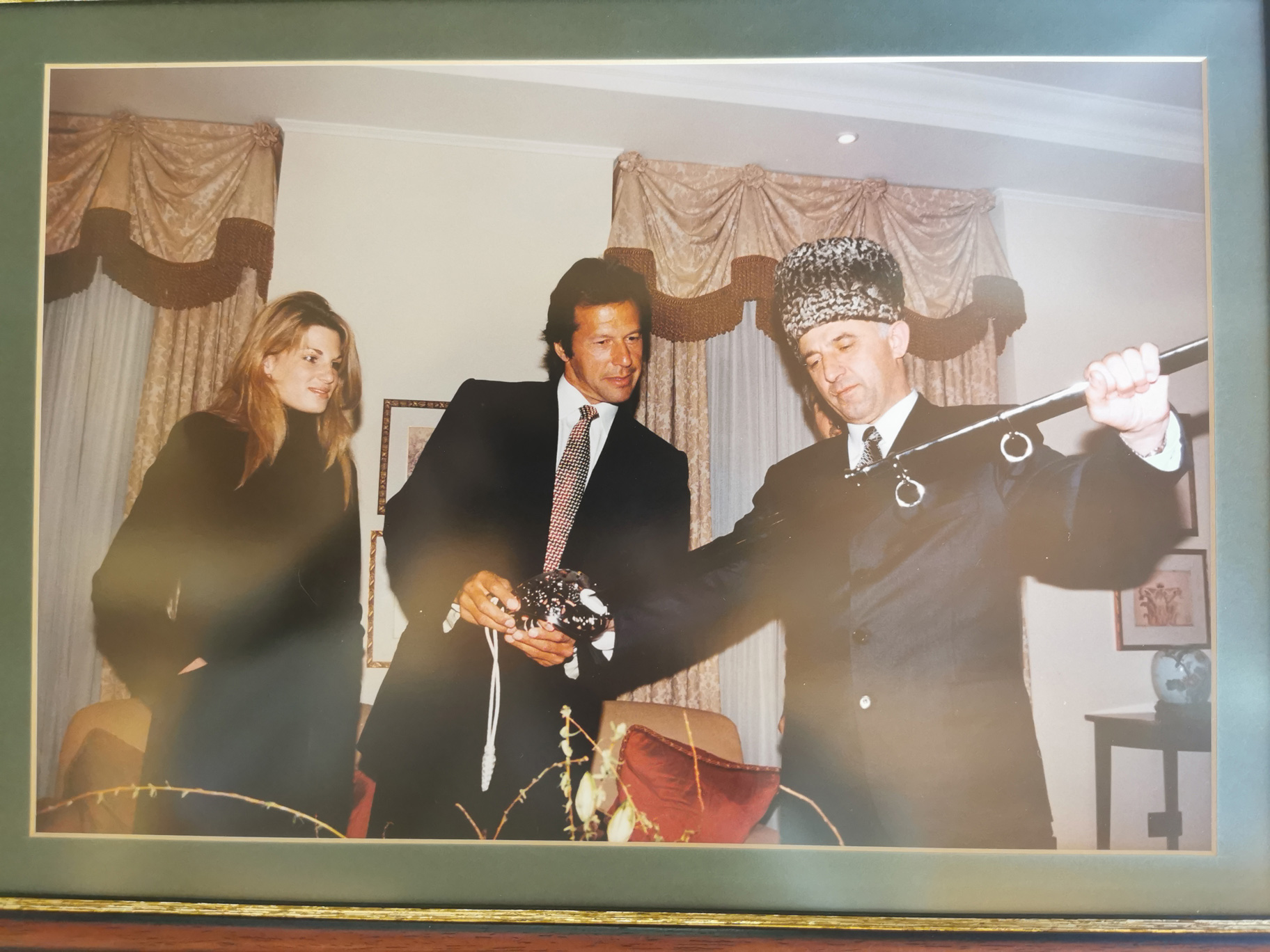Imran Khan, Prime Minister of Pakistan

Imran and Jemima Khan with Aslan Maskhadov, President of Chechnya, London 1998
WorldPR first advised Imran Khan in May 1994, when he married Jemima Goldsmith, daughter of the Anglo-French billionaire Sir James Goldsmith who had founded the Referendum Party. Although the marriage to Jemima came to end in 2004, Imran Khan went on to play an important role in Pakistan’s politics, eventually becoming the country’s Prime Minister in 2018.
Khan, former international cricketer for almost a quarter of a century, was born to a Pashtun family in Lahore in 1952 and educated at Oxford. He began his international cricketer career at the age of 18 in a test series against England. He served intermittently as his team’s captain between 1982-1992, leading his country to its first and only victory in the Cricket World Cup in 1992.
As his sports career approached its end Khan moved to the world of philanthropy, public affairs and politics. In 1998 he led a delegation organised by WorldPR to war-torn Chechnya to promote the peace and recognise Chechen independence. At home, he launched an international fundraising campaign to set up a cancer hospital in memory of his mother, Mrs. Shaukat Khanum. After raising $25 million to establish a hospital in Lahore he went on to create a second hospital in Peshawar and a research centre in Lahore, and founded Kamal College, a university providing access to poor students linked to the University of Bradford, where Khan served as chancellor from 2005-14.
Campaigning against corruption and in favour of economic reform, Khan founded the Tehreek-e-Insaf (PTI) in 1996, winning a seat in the National Assembly in 2002. In November 2007, Khan was put under house arrest after president Musharraf declared a state of emergency. His party’s prospects of gaining power were at first written off by the international media and it chose to boycott the 2008 general election, but in the subsequent election PTI became the second-largest party by popular vote.
Since becoming Prime Minister in 2018, Imran Khan has brought in anti-corruption measures and introduced major reforms in education and healthcare. On the international stage, he has sought to improve relations with both the US and China while seeking to expand his country renewable energy sources. His government is currently seeking to secure the repatriation of former prime minister Nawaz Sharif who, having been sentenced to ten years in prison by the Federal Judicial Complex in 2018, absconded from Pakistan in 2019 and is now directing an opposition campaign from London. Uniquely among Pakistan’s recent political leaders, Khan has enjoyed 50 per cent or more approval rating throughout his premiership.
